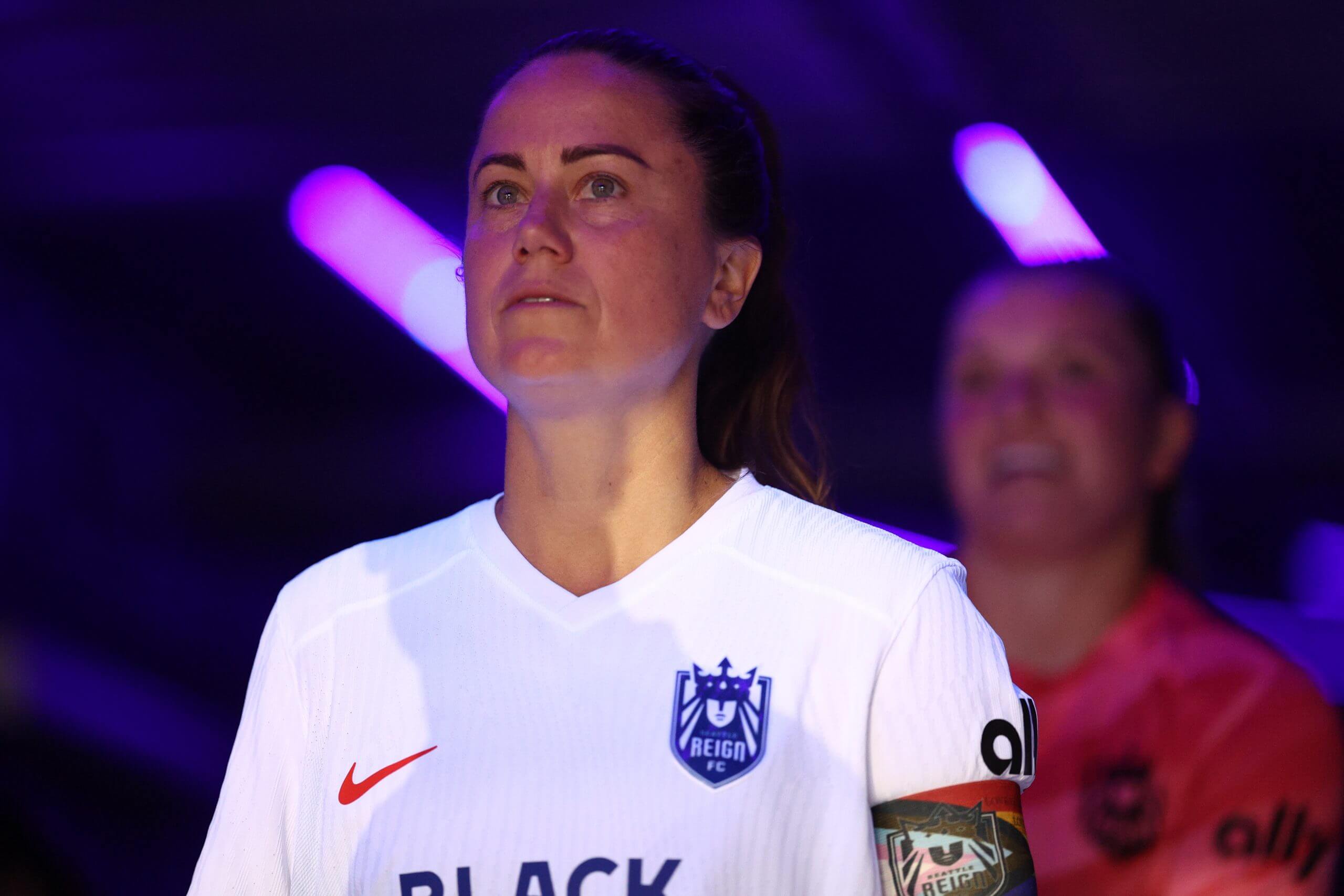
First come the blood tests: cold, clinical and revealing.
Fertility treatment starts with these measurements to determine whether a person’s egg reserves are viable enough to proceed. If the threshold is met, the next phase begins: daily injections of artificial hormones designed to push the body into overproducing eggs. Bruising is common, but it pales in comparison to the burning sensation as hormones enter the body.
Advertisement
Then there is bloating; breasts can become so tender that even light clothing is painful. By the third week, sleeping can get harder and ovaries can feel like they might burst. But the process continues until the retrieval. It is not just about freezing eggs — it is about trying to freeze time, to buy a chance in the game, on the pitch and off.
“It’s not something easy to go through at all,” Seattle Reign defender Lauren Barnes tells The Athletic. She used her club’s partnership with a local fertility clinic to freeze her eggs last year. “I actually got my eggs removed maybe four days before preseason, but it probably took me six months to feel myself again.”
While the 35-year-old does not downplay the physical toll of the treatment or injecting herself daily (she relied on teammates and friends to do it for her), she encourages younger players to take advantage of fertility benefits NWSL teams are offering as early as possible.
“I think as an older player, not having that even earlier on in my career was definitely a big missed opportunity,” she says.
She often finds herself in the locker room answering her younger teammate’s questions.
“We have such young girls now, they don’t necessarily have to do it at 19,” she adds. “But even for them to start those conversations, and the fact that they can do these treatments earlier, is going to be so impactful for women’s sports moving forward. It’s life-changing.”
According to research published by the National Library of Medicine, women under 30 have an 85 percent chance of conceiving naturally within a year. That probability drops to 66 percent by age 35 and falls further to 44 percent by age 40, largely due to the natural aging process affecting the ovaries and egg quality. While women can conceive throughout their reproductive years, every individual is different, and the likelihood of a successful pregnancy declines with age.

Barnes is taking advantage of the fertility benefits her team offers. (Nathan Ray Seebeck / Imagn Images)
Whether it’s for future family planning, infertility or simply peace of mind, more NWSL teams are now offering fertility services to support their players.
The Reign is one of 11 NWSL teams that announced partnerships with local fertility clinics in the last few years. Earlier this month, Kansas City Current signed a multi-year partnership with the fertility clinic Blue Sky to offer treatment for players.
Advertisement
Bay FC does not currently offer fertility treatments to its squad, and the Utah Royals, which is under new ownership, declined to elaborate on what it offers in terms of this. Orlando Pride does not partner with a fertility clinic either, but the club said its front-of-shirt sponsor, Orlando Health, supports its players and staff in fertility journeys through Winnie Palmer, its hospital for women and babies. Similarly, Angel City FC said it has an overarching partnership with Cedars-Sinai, which allows players access to women’s health resources.
In theory, every player has access to some level of coverage for these treatments. The NWSL said it offers all players fertility support through Maven Clinic, which offers family-planning resources and access to a network of providers. The league fully covers the cost of those memberships. Under its insurance plans, the league includes family building benefits that help offset expenses for services like In Vitro Fertilization (IVF) and Intrauterine Insemination (IUI) treatment, fertility medication, egg, embryo, and sperm preservation. Beyond fertility care, the league also offers pregnancy, parental, housing and childcare benefits, outlined in the new collective bargaining agreement (CBA).
The NWSL’s support for fertility and family planning for players comes at a time when IVF has come under attack in some states. Donald Trump’s administration has expressed support for IVF access, yet recently slashed funding to federal programs designed to help patients compare IVF clinics, track fertility treatment safety and interpret health data.
However, one NWSL team was ahead of the curve on fertility care, tackling access to treatment before family planning became a nationwide talking point.
In 2021, the expansion franchise Racing Louisville became the first team in the league to provide fertility treatments to its players. The club also promised to cover cryo-storage fees — freezing and preserving women’s eggs or fertilized embryos at extremely low temperatures for future use, which cost anywhere between $500 (£376) to $1500 (£1128) per year — even if a player departed the club.
Advertisement
The push came from an unexpected source.
Dr. Robert Hunter, a lifelong soccer fan and the founder and director of Kentucky Fertility Institute, reached out to the new ownership group after watching Megan Rapinoe and Sue Bird talk about the latter’s decision to freeze her eggs in 2019.
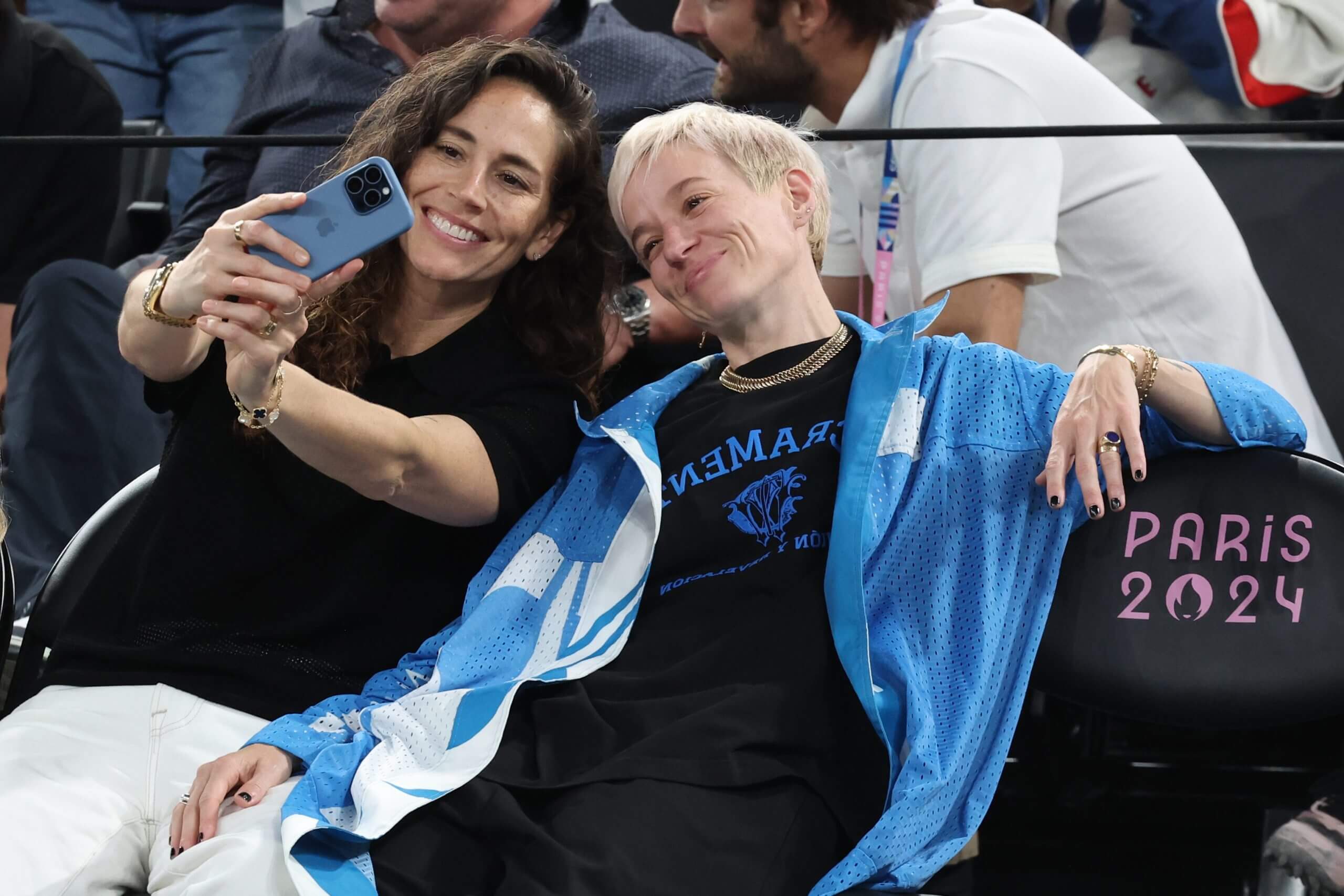
Sue Bird (left) documented her egg-freezing journey in 2019. (Pascal Le Segretain / Getty Images)
“My thought was, as an expansion team, offering fertility benefits could be a competitive advantage, a way to attract seasoned players in their early 30s who might be wrestling with fertility concerns,” he says.
At the time, with much lower salaries in the league, freezing eggs that would otherwise cost over $10,000 was indeed a competitive advantage for the new franchise. Through the partnership with Dr. Hunter’s clinic, Racing’s players were given the flexibility to start a family with minimal interruption to their careers, either via surrogacy or personal use upon retirement.
“Professional athletes shouldn’t have to choose between their careers and their plans for a family,” he says.
Until very recently, however, this was the case. The physical demands of professional sports, coupled with the narrow window of peak fertility, left many athletes sacrificing one future for another. While fertility and family planning benefits won’t erase the tension, it does offer players more of an opportunity to choose.
Angel City FC defender Ali Riley is living proof of that change. The 37-year-old hadn’t seriously considered starting a family until recently, and once she did, she faced a steep learning curve and a series of obstacles along the way.
She just finished her second IVF cycle while also recovering from a nerve issue in her left leg. Now she’s using her platform to inform and support others navigating the same journey.
“It’s all part of the same fight,” she says. “All we want is to be athletes, but we’re wearing 10 hats: pushing for equal pay, better resources, proper coverage. We’re expected to perform while constantly fighting just to be seen as worth investing in. It’s exhausting.”
Advertisement
Since her first cycle only provided one embryo, she decided to do it again. Thanks to her doctor’s almost-needle-free approach, her experience has improved. Additionally, she partnered with Mira, an at-home fertility testing company, which is donating their kits to soccer clubs.
“We spend years trying to be great players, and then we have to worry, ‘Can my body still have children? How many eggs do I have? Am I still fertile?’” she says. “It’s just one more challenge women face.”
One of the reasons Olympic gold medalist Kailen Sheridan chose to play for San Diego Wave was because the team partnered with a fertility clinic.
The goalkeeper froze her eggs and created embryos with a sperm donor last year. Her wife, Dominique, carried their first child, getting pregnant via IVF, using Sheridan’s embryos.
“Having the availability to do IVF with the club and its partners was huge for us,” she says. “If we didn’t have the stability from the CBA and the security it provides, this probably would’ve been something we considered much later. It’s the first time we’ve had real protections where you don’t feel like starting a family means risking your contract, your salary, or your spot on the team. Right now, it makes the most sense for Dom to carry, but that doesn’t mean I don’t want to. I absolutely do, sometime during my career.”
Sheridan’s journey sparked interest in the topic among young players on her team, too.
“The biggest thing for them is the egg freezing,” she explains. “Talking to your doctor about what happens to your eggs as you get older and knowing there’s a way to prepare for that while continuing your career. It brings peace of mind.
“It’s been interesting to see older players now recognizing this as an option, while younger players are approaching it more proactively. They’re like, ‘OK, that’s something that’s going to be important. I should do it now.’”
Advertisement
Sheridan, Riley and Barnes are among a handful of NWSL players who have been open about their fertility journey. Last year, Becky Sauerbrunn, who previously played for the Portland Thorns, talked about freezing her eggs, as did Riley’s teammate, Sydney Leroux, who has had two children during her active playing career.
“It comes down to which clubs want to put the investment in that and partner with these fertility clinics that are going to offer support, financially and physically and emotionally for players,” Sheridan says. “I think that should be something that has to be mandatory in women’s sports.”
(Photos: Getty Images; design: Eamonn Dalton)
This news was originally published on this post .







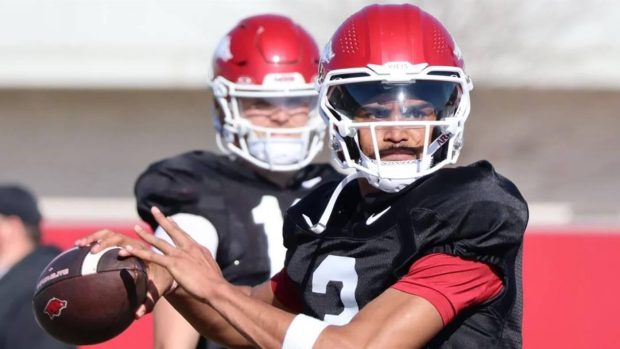
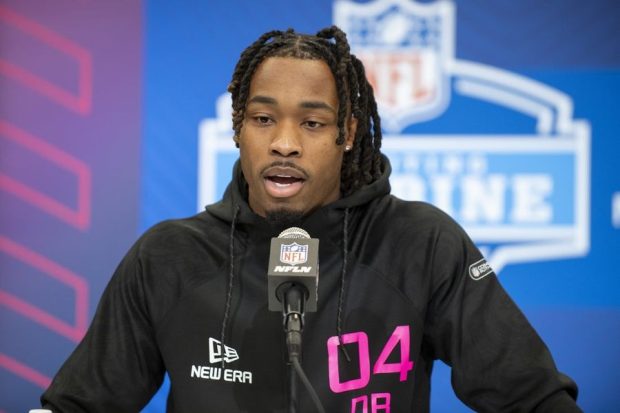
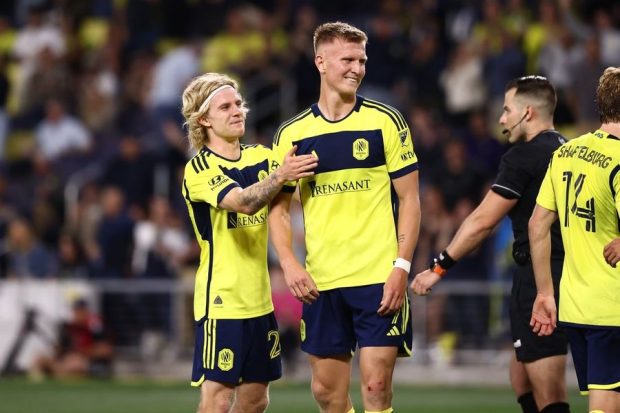
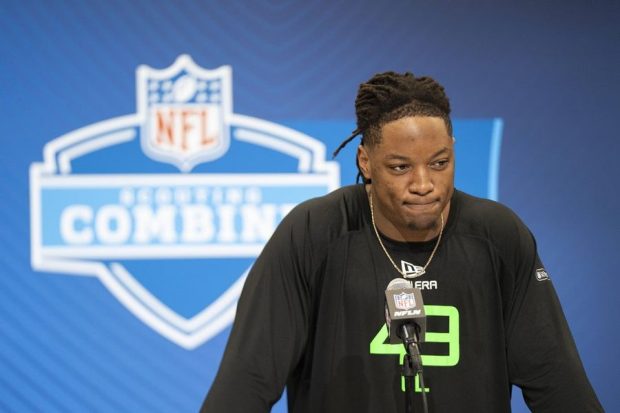

Be the first to leave a comment